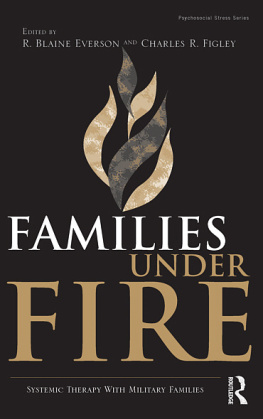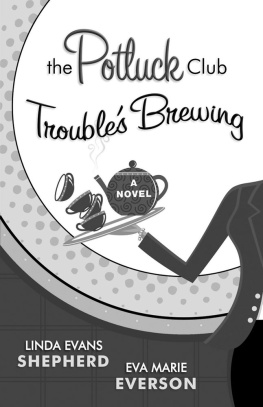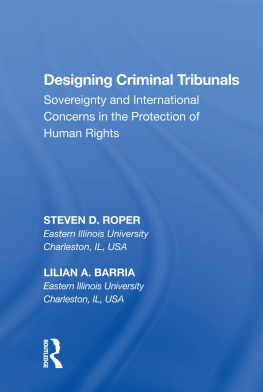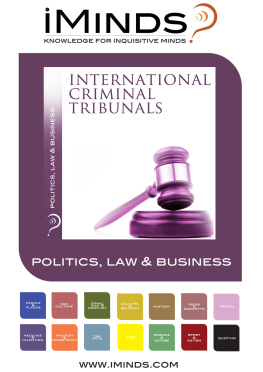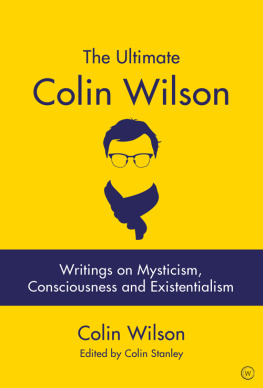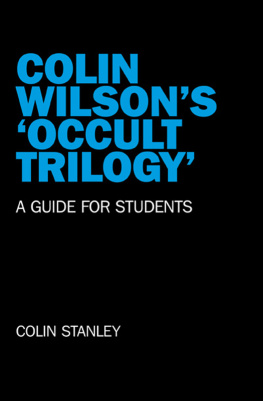First published 2002 by Gower Publishing
Reissued 2018 by Routledge
2 Park Square, Milton Park, Abingdon, Oxon OX14 4RN
711 Third Avenue, New York, NY 10017, USA
Routledge is an imprint of the Taylor & Francis Group, an informa business
Copyright Colin Everson 2002
Colin Everson has asserted his right under the Copyright, Designs and Patents Act 1988 to be identified as the author of this work.
All rights reserved. No part of this book may be reprinted or reproduced or utilised in any form or by any electronic, mechanical, or other means, now known or hereafter invented, including photocopying and recording, or in any information storage or retrieval system, without permission in writing from the publishers.
Notice:
Product or corporate names maybe trademarks or registered trademarks, and are used only for identification and explanation without intent to infringe.
Publishers Note
The publisher has gone to great lengths to ensure the quality of this reprint but points out that some imperfections in the original copies may be apparent.
Disclaimer
The publisher has made every effort to trace copyright holders and welcomes correspondence from those they have been unable to contact.
A Library of Congress record exists under LC control number: 2001040541
Typeset in Plantin Light and Helvetica by IML Typographers, Birkenhead, Merseyside.
ISBN 13: 978-1-138-70415-2 (hbk)
ISBN 13: 978-1-315-20282-2 (ebk)
Welcome to this training resource, which is designed to help you handle the events both during and most vitally preceding an employment tribunal.
WHAT THIS RESOURCE IS AND IS NOT INTENDED TO DO
This resource is not intended to make you an expert on employment law. Given the complexity of the law, its rapid development and the effect of precedents flowing from case law on subsequent decisions, it is difficult for anyone to be an expert in the subject on more than a day-to-day basis. Rather, it is written chiefly from the point of view of a fair-minded employer,
who tries to foster a good climate in the workplace
whose formal grievance and disciplinary procedures do not need to be invoked frequently
who intends to fight only inevitable legal battles that they can be confident of winning.
This should be the case in organizations both large and small, privately and publicly owned, unionized and non-unionized.
Fairness at work
All employees have a right to be treated fairly you expect such treatment yourself when you are an employee, so why should lower standards apply to people who work for you? Promoting a climate that is fair and just to all employees will prevent most difficult and potentially expensive cases arising. This work is not intended to help you sack, dismiss, get rid of, let go whatever the term in use may be an employee, however unfairly they may have been treated. In any case, tribunals are staffed by people with a combination of legal training and industrial or commercial experience, who are very likely to see through a case that does not have real merit. Going to tribunal is often expensive, always time-consuming, and frequently unnecessary if the right working relationships have been fostered throughout the organization.
ELEMENTS OF THIS RESOURCE
A variety of elements is provided. You can choose to use any or all of them in the way that suits your situation best. A brief description and suggested way of using each of them follows here. No model programme is given, as the exact needs can vary so widely among users of the materials. However you decide to use the resource, it should help you to ensure that:
attitudes and procedures in your organization, whatever its size, are fair and can be proved to be so
should the worst happen and facing an employment tribunal is a costly and stressful worst case scenario for most people you can face the proceedings knowing that you have acted fairly and in accordance with employment law to the best of your abilities and knowledge.
Read systematically through the entire resource, noting topics as you go that require action either directly, or through other people in your organization. A Personal Action List is provided within the Appendix, on which you can make notes as you read.
Introduction
The introductory section provides some straightforward background information on the subject of employment practices and legislation that affects them.
The risk management approach to employment tribunals
Risk management approaches are just as relevant to employment issues as they are to health and safety, product integrity, information security and insurance. Being taken to tribunals by employees, especially if this happens frequently and/or leads to costly awards to appellants, reflects on management attitudes and practices just as do high levels of accidents, frequent product recalls or leaks of sensitive information to competitors.
Where theres blame, there lies a claim
The title for Section 3 is deliberately suggestive of the general attitude of mind that prevails in modern society, exemplified by a host of commercials on TV and radio. This chapter gives some background information about the rising numbers of claims being made in the increasingly compensation-conscious culture with which organizations must cope. It describes the importance of case law, which to some extent makes the standard required of employers a moving target. Actual examples of cases that reached tribunal, were withdrawn by the appellant, or were settled out of court are quoted, covering the major areas of unfair dismissal, race discrimination and sex discrimination. Also included are some cases that the appellant lost.
You may find the size of some awards made, or the grounds on which some of them were made, surprising or even shocking. Nevertheless, you must deal with the world as it is and build the potential costs of losing at a tribunal into your risk management strategy. Remember that the tribunal is not concerned with your ability to pay any compensation awarded. The sums are decided by standard formulae related to the losses that an appellant has suffered, including injury to his or her feelings in matters of race or sex discrimination.
Examples of some employment practices in recruitment and staff appraisal are cited, where they may prejudice or assist your case.
Personal attitude questionnaire
Use the personal questionnaire at least twice, firstly, as soon as you have read the introduction that follows this resource guide, then again after you have used any of the main case study materials, to check your attitude towards fairness at work.
The case studies
The three Case Studies are the kernel of this resource. They are all based on real-life situations and set in a variety of backgrounds, as summarized:
No. | Setting | Grounds for complaint | Representing appellant | Representing respondent |
| SME sector, manufacturing, wholesaling and retail business Non-union environment Partnership |




